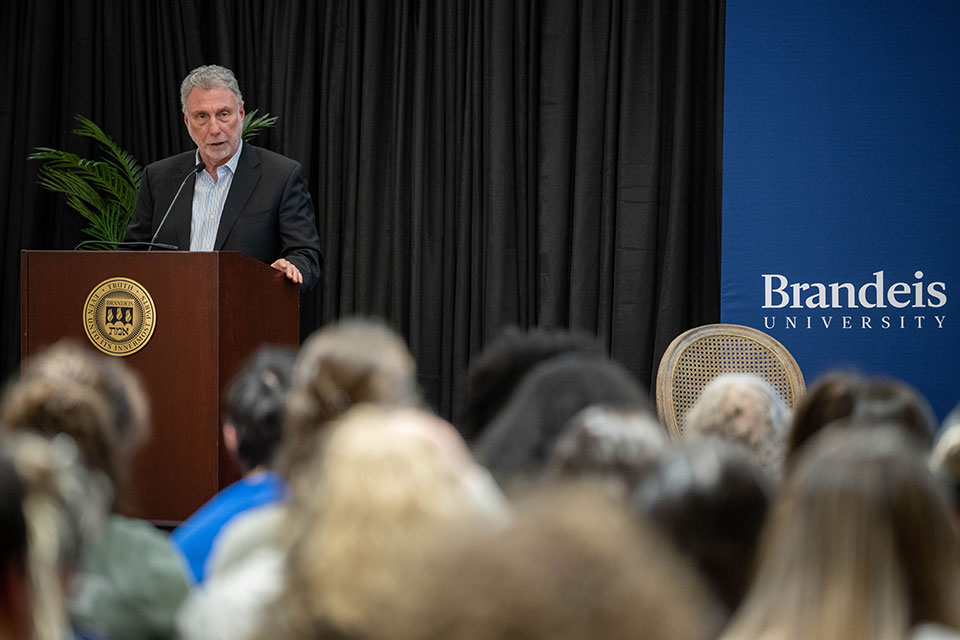Past Fellows

Martin “Marty” Baron retired as executive editor of The Washington Post on February 28, 2021, after overseeing its newsroom for more than eight years. He oversaw The Post’s print and digital news operations and a staff of about 1,000 journalists. Newsrooms under his leadership have won 18 Pulitzer Prizes, including 11 at The Post.
Peter C. Frumhoff served through 2021 as the longtime chief climate scientist and director of science and policy at the Union of Concerned Scientists. Frumhoff is currently on sabbatical at the Harvard University Center for the Environment where he is researching the scientific basis for climate litigation against fossil fuel companies and governments.
Rebecca Cokley is the first program officer to lead a U.S. based disability rights portfolio for the Office of the President at the Ford Foundation. From 2017-2020 she served as the founder/director of the Disability Justice Initiative at the Center for American Progress, which focuses on expanding economic opportunity for people with disabilities and building inclusive policies.
Playwright, actor and educator Anna Deavere Smith uses her singular brand of theatre to explore issues of community, character and diversity in America. The MacArthur Foundation honored Smith with the “Genius” Fellowship for creating “a new form of theatre — a blend of theatrical art, social commentary, journalism and intimate reverie.”
Vanita Gupta is president and chief executive of the Leadership Conference on Civil and Human Rights, making her the first woman and the first child of immigrants to run the largest civil and human rights coalition in the nation. As principal deputy assistant attorney general for civil rights for the U.S. Department of Justice in the Obama administration, and thus the top civil rights prosecutor in the nation, Gupta, the daughter of Indian immigrants, took on a wide variety of challenges and shone a harsh light on discrimination and injustice.
Jeffrey L. Brown is founder of RECAP (Rebuilding Every Community Around Peace) and a key community leader responsible for what the New York Times called the “Boston Miracle,” when the youth homicide rate declined from a high of 73 deaths (1990) to zero (1995–1998). The model of social responsibility Brown helped mastermind involves new roles for youth, police and courts to advance social justice and ensure the right of every young person to live in an urban community without violence.
Named one of the hundred most important people in the art world by ArtReview and “Innovator of the Year” by the Wall Street Journal, Theaster Gates is a multimedia artist, activist, social engineer, curator, cultural entrepreneur and esteemed member of the elite global art world. His message that art and creativity are engines for attacking poverty, revitalizing neighborhoods and providing opportunity is motivated by a strong social justice agenda.
Named a “Living Legend” by the U.S. Library of Congress, Julian Bond has been a driving force for social change for more than 50 years — as a civil rights leader, politician, scholar and writer. In 1960, he helped co-found the Student Nonviolent Coordinating Committee. He went on to serve four terms in the Georgia House of Representatives and six terms in the Georgia Senate. During his legislative tenure, Bond successfully fought to create a majority black congressional district in Atlanta and organized the Georgia Legislative Black Caucus.
Angela Glover Blackwell, the founder and chief executive officer of PolicyLink, a national research and action institute advancing economic and social equity, has been appointed as the inaugural Fred and Rita Richman Distinguished Fellow in Public Life at Brandeis University.